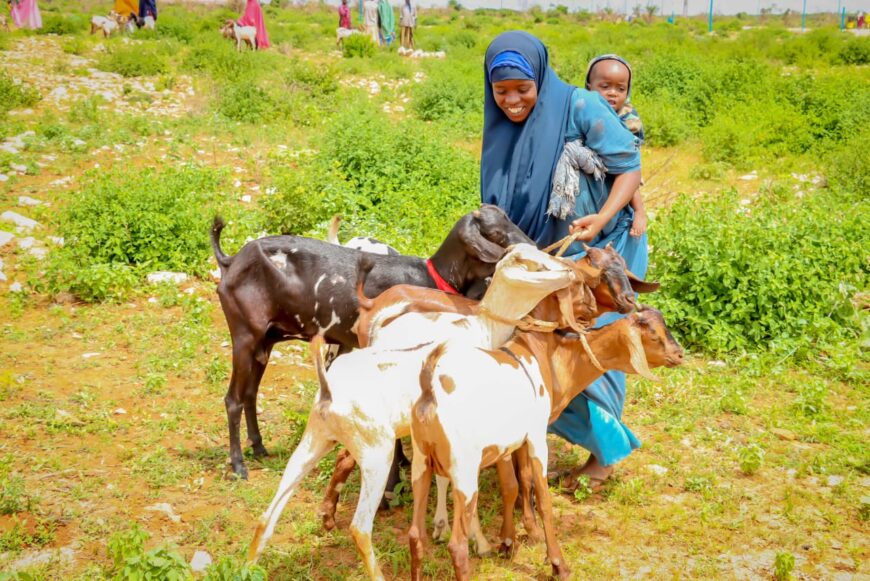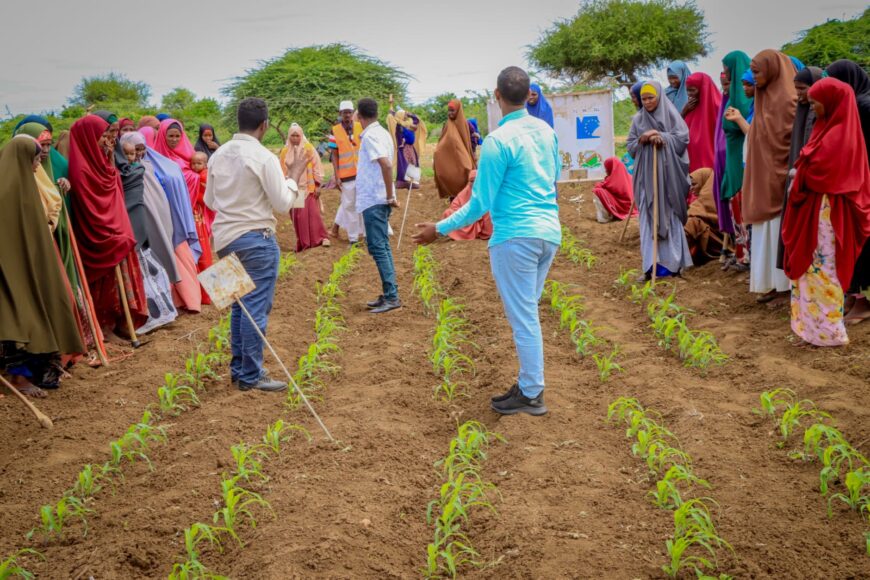The humanitarian crisis affecting Somalia is the result of decades of shocks and conflicts. These recurrent shocks and conflicts together severely affect the most vulnerable communities making them even more fragile. Somalia is considered to be among the most food insecure countries with nearly 4.6 million people (almost 24 % of the population) experiencing acute food insecurity and in IPC phase 3 (crisis) or above between April and June 2025. Jubaland and Southwest State are home to many who are grappling with severe levels of food insecurity and malnutrition.
With the support of the French Embassy in Kenya and Somalia, Acted and its national partner Gargaar Relief and Development Organization (GREDO) have been implementing the project “Strengthening the nutrition well-being and resilience of vulnerable communities in South-West State and Jubaland, Somalia” since September 2024 to reduce mortality among children and mothers suffering from severe and moderate acute malnutrition. While life-saving nutritional assistance is provided, Acted and GREDO programming also aims for a long-term impact by building the resilience capacities of the communities supported.
Holistic approach to addressing food insecurity and malnutrition contributes to long-term resilience building in rural Somalia

Building on local practices to ensure community ownership to climate-change adaptation

As a vast majority of the population in Jubaland and Southwest State, Nishey relies on agri-pastoral activities to sustain her family. With increasing climate shocks such as drought and floods, it is vital for communities to adapt their practices to these recurrent and uncertain challenges.
Thanks to Acted, GREDO and the French Embassy, now I know how to protect my animals and how to prepare for hard seasons.
This project, implemented by Acted and its local partner GREDO with the support of the French Embassy, has significantly improved the nutrition well-being and resilience of vulnerable communities in Jubaland and Southwest states of Somalia. The initiative improved livelihoods opportunity and durability for 850 of the most vulnerable women-led households at risk of malnutrition. The project has helped families like Nishey’s to address urgent nutritional needs and regain their livelihood that was once almost lost and instilled them hope while improving their resilience to future shocks.
Permagardening –is a sustainable gardening method that combines principles of permaculture with intensive gardening techniques to create a permanent, low-maintenance, and highly productive garden. It’s designed to regenerate soil, conserve water, and produce food year-round, especially in areas with limited resources.